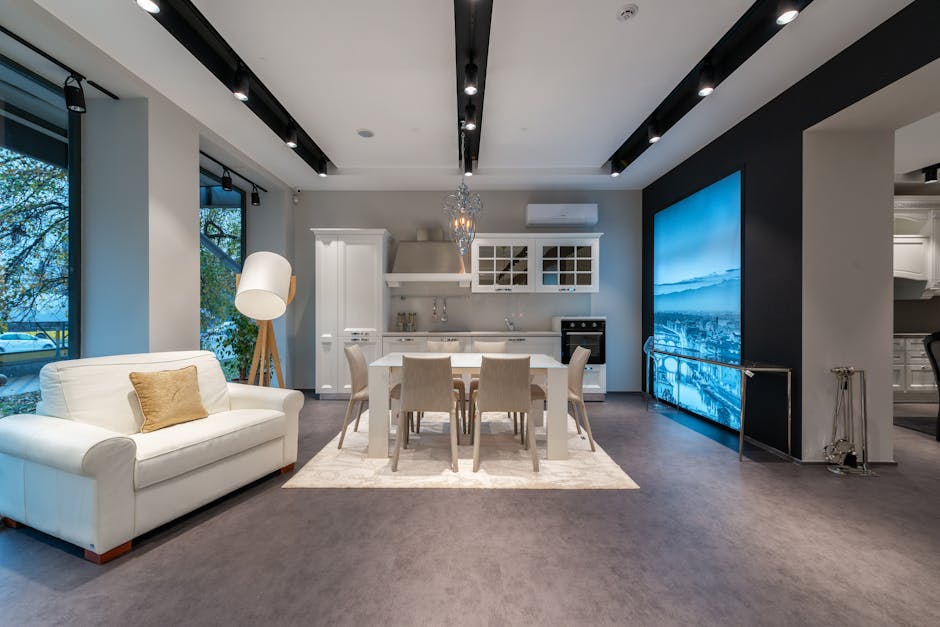The Condo Seller’s Roadmap: What You Need to Know
If you’re ready to sell my condo, here’s what you need to know about the process:
- Preparation (2-4 weeks):
- Check HOA rules and gather documents
- Make minor repairs and updates
-
Deep clean and stage your space
-
Listing (1-2 weeks):
- Price competitively based on comparable sales
- Take professional photos and create listing
-
Create marketing materials highlighting amenities
-
Showing & Selling (30-70 days on average):
- Host open houses and private showings
- Review and negotiate offers
-
Accept offer and move to closing
-
Closing (30-45 days):
- Complete inspections and appraisals
- Handle any contingencies
- Sign paperwork and finalize sale
Selling a condo involves navigating a unique set of considerations compared to selling a single-family home. While the basic process might seem similar, condos come with their own rules, challenges, and opportunities that can significantly impact your selling strategy.
The median sales price for a condo in the U.S. currently sits at $354,200, compared to $422,100 for a single-family home. This price difference, along with the lifestyle benefits of condo living, can attract different buyer demographics than traditional homes.
When selling your condo, you’ll need to consider factors like condo association rules, monthly fees (typically $300-$400), and potential special assessments that might affect your sale. You’ll also want to highlight the amenities and maintenance-free lifestyle that make condo living attractive to buyers.
The good news? With proper preparation and the right strategy, condos can sell quickly. In today’s market, the average condo spends about 40-70 days on the market before going under contract, with an additional 30-45 days to close.
Whether you’re upgrading to a larger space, downsizing, or simply looking for a change of scenery, this guide will walk you through everything you need to know to sell your condo successfully.

What Makes Selling a Condo Unique Compared to a Single-Family Home
When you’re ready to sell my condo, you’re offering more than just a private living space—you’re selling a piece of a vibrant community with shared responsibilities and benefits. This fundamental difference shapes every step of your selling journey.
“Selling a condo isn’t necessarily like selling a home,” explains Sarah Kim, a real estate advisor specializing in condominium sales. “You can avoid unexpected problems by planning ahead and understanding the unique aspects of condo ownership that affect the sale.”
The typical American condo ranges from 900 to 1,200 square feet, making smart space utilization a powerful selling point. As of September 2024, there’s a 5.70 months’ supply of condos on the market nationwide, creating competitive conditions in many areas.
Your condo sale stands apart from single-family homes because of HOA governance—associations control common areas and may restrict everything from your staging choices to potential buyers. Lenders carefully examine association finances, reserve funds, and owner-to-renter ratios before approving loans. Those beautiful shared amenities—pools, fitness centers, security features—become major selling points, while monthly dues (typically $300-$400) cover exterior maintenance and community services. And don’t forget about special assessments, those unexpected community repair charges that can influence your sale negotiations.
Key Differences That Affect Strategy
When preparing to sell my condo, you’ll need to steer several condo-specific challenges with care.
Some associations require formal board interviews or approval processes for potential buyers. In age-restricted communities, you may only sell to buyers 55 and older, significantly narrowing your market.
“I’ve seen deals fall through because the buyer wasn’t aware of or couldn’t meet association requirements,” shares Jeff Meeks, who recently sold his Tampa condo. “It’s crucial to disclose these requirements upfront to avoid wasted time.”
Lenders scrutinize HOA financial health intensely. If your association’s reserves appear too low, buyers might struggle to secure financing, limiting your pool of potential purchasers.
The right of first refusal clause in some associations means the HOA can purchase your unit before an outside buyer, potentially complicating or delaying your sale timeline. And those special assessments for major repairs? They can range from $500 to $10,000 or more, must be disclosed, and often become significant negotiation points.
Pros & Cons of Condo vs. House Sales
Selling a condo comes with distinct advantages. The low-maintenance appeal of condo living attracts busy professionals and retirees who love the “lock-and-leave” lifestyle. Your community amenities like pools, gyms, and security features offer valuable perks that standalone homes typically can’t match. The more accessible price point (median condo price: $354,200) can attract first-time buyers who’ve been priced out of single-family homes. Many buyers specifically seek the social connections and community feel that condo living fosters.
However, challenges exist too. Those monthly HOA fees and potential special assessments can give some buyers pause. Association rules might limit your renovation options or selling flexibility. Some condo buildings don’t meet FHA or conventional loan requirements, creating financing problems. And historically, condos may appreciate more slowly than single-family homes in certain markets.
According to National Association of Realtors data, staging a home increased value in 52% of cases. For condos, where space efficiency matters tremendously, professional staging can dramatically impact buyer perception and your bottom line.
For more insights on how market conditions might affect your condo sale, check out our real estate market projections for 2025 to stay ahead of key trends.
Pre-Listing Playbook: Timing, Valuation, Repairs & Upgrades
Before you list your property, careful preparation can make the difference between a quick, profitable sale and a lengthy, frustrating experience. Let’s break down the essential pre-listing steps.

Determine the Best Season to List
Timing can significantly impact how quickly you sell my condo and for what price. While spring and summer typically bring out the most buyers nationwide, condo markets often dance to their own seasonal rhythm.
For resort and vacation properties, strategic timing is everything. If you own a ski-adjacent unit, listing in October just before the season kicks off can create a sense of urgency among buyers eager to secure their winter retreat. Beachfront condos, on the other hand, tend to shine brightest in early spring when summer-dreaming buyers are planning ahead.
“I listed my ski-area condo in October,” shares Craig Meeks, a recent seller. “By timing the market just before the season started, I had multiple offers within two weeks as buyers were eager to secure a place before the snow fell.”
Urban condos generally follow the traditional spring surge (April-June), with a smaller but notable uptick in fall (September-October). But don’t discount winter months entirely! With fewer competing listings, your well-staged condo might capture more attention during December and January, even as overall market activity slows.
The key is understanding your local market’s absorption rate – how quickly condos are selling compared to how many are available – and timing your listing to take advantage of low-competition periods when possible.
Price it Right: The Math Behind ‘Sell My Condo’ Success
Pricing is perhaps the most critical decision you’ll make in your selling journey. Too high, and you’ll watch buyers scroll past your listing; too low, and you’re leaving hard-earned equity on the table.
A professional Comparative Market Analysis (CMA) is worth its weight in gold here. Unlike single-family homes, condos require nuanced comparison factors. Your real estate professional will examine recent sales of similar units in your building, comparable properties in nearby buildings, and the price per square foot in your area.
Those automated online valuation tools? They’re a starting point, but Zestimates and their cousins often miss crucial condo-specific factors. As Sarah from Hopkinton finded: “When I priced my condo, I learned units with lake views were selling for about 15% more than identical units facing the parking lot. That specific detail wouldn’t show up in an automated valuation.”
Smart sellers establish both an asking price and a firm bottom-line price before negotiations begin. They also consider supply and demand dynamics – if yours is the only available unit in a highly sought-after building, you might command a premium regardless of what the comps suggest.
Appraisal gaps can occur when a buyer’s lender values the property lower than the agreed sale price. In hot markets, some buyers may offer to cover this gap with additional cash – something to consider when evaluating offers.
Must-Do Updates for Maximum ROI
Not all pre-sale improvements are created equal. The key is focusing on high-impact, relatively low-cost upgrades that will help you sell my condo faster and for more money.
Fresh paint transforms spaces instantly and typically costs between $350-$850 per room. Stick with neutral colors that appeal to the broadest range of buyers – soft grays, warm whites, and gentle beiges create a blank canvas for buyers’ imaginations.
Kitchen and bathroom updates deliver some of the best returns. New countertops (granite at $80-150 per sq. ft. or quartz at $50-200) can modernize these crucial spaces without a full renovation. Even swapping out dated appliances for moderately priced stainless steel models can dramatically change buyers’ perceptions.
Flooring matters enormously in condos, where sound transmission is a common concern. Consider quiet options like carpet ($2-8 per sq. ft.) with quality padding or engineered hardwood ($7-25) with soundproof underlayment ($0.20-0.50 per sq. ft.). These improvements not only look great but address a practical concern for shared-wall living.
Lighting upgrades cost relatively little but make spaces feel larger and more inviting. Replace dated fixtures with modern alternatives and consider increasing brightness in key areas like kitchens and bathrooms.
Perhaps most impactful is professional staging, which typically costs 1-3% of your asking price but delivers an impressive 8-10% return on investment. According to NAR data, 82% of buyers’ agents reported that staging helped their clients visualize the property as their future home.
One important safety note: Before removing old popcorn ceilings or making other major changes to older units, always test for asbestos, especially in buildings constructed before the 1980s.

Listing Day to Offer: How to Price, Market & Show to Sell My Condo Fast
With preparation complete, it’s time to put your condo on the market. This phase requires strategic marketing to ensure your property stands out in a competitive landscape.
Marketing Checklist: Online Tactics to ‘Sell My Condo’ in Record Time
In today’s digital-first world, your online presence matters enormously. Nearly all buyers start their home search online, with 43% citing it as their first step in the journey.
Professional photography is non-negotiable. High-quality, well-lit photos make an enormous difference in buyer interest. Consider these statistics:
– 84% of buyers place high importance on listing photos
– Listings with professional photos receive 61% more views
– Properties with high-quality photos sell 32% faster
“When I listed my condo, I invested in professional photography that showcased the natural light and views,” shares Kim Carrin, who sold her condo in just 33 days. “The photographer knew exactly how to make my 950 square feet look spacious and inviting.”
Virtual tours and 3D walkthroughs have become increasingly important, especially for out-of-town buyers or vacation property shoppers. These tools allow prospects to explore your space thoroughly before scheduling an in-person visit.
Video content adds another dimension to your listing. Consider a brief walkthrough video highlighting key features or a lifestyle video showcasing the building’s amenities and surrounding neighborhood.
MLS exposure is critical. Homes listed on the MLS sold for 17.5% more than off-MLS listings, representing more than $53,000 for the typical seller. If you’re working with an agent, ensure your listing appears on the MLS and syndicates to major real estate websites.
Targeted social media marketing can help reach specific buyer demographics. For instance, if your condo is perfect for young professionals, Instagram and Facebook ads can target this audience precisely.
Highlight Amenities & Lifestyle Benefits
When marketing your condo, emphasize what makes condo living special. You’re not just selling square footage—you’re selling a lifestyle.
Building amenities are major selling points:
– Pool and spa facilities
– Fitness center or gym access
– Concierge services
– Security features
– Parking arrangements (especially in urban settings)
– Community spaces like rooftop decks or party rooms
Lifestyle benefits that appeal to many condo buyers:
– Low-maintenance living (no yard work, exterior maintenance, or snow removal)
– Lock-and-leave convenience for travelers
– Built-in community and social opportunities
– Walkability to restaurants, shopping, and entertainment
– Potential rental income if the association allows short-term rentals
“I made sure my listing emphasized our building’s rooftop deck with skyline views and weekend wine socials,” explains Jeff from Florida. “These were the features that ultimately sold my buyer—not just the unit itself.”
If your building has unique benefits—perhaps it’s FHA-approved when many nearby aren’t, or it allows pets when others don’t—make these selling points prominent in your marketing.
Flexible Showings & Staging Hacks
Making your condo easy to show and visually appealing is crucial for a quick sale.
Flexible showing options increase your buyer pool:
– Offer virtual showings for out-of-town buyers
– Consider lockbox access if you’re not local
– Be accommodating with evening and weekend showings
– If you have tenants, provide clear showing guidelines and incentives for cooperation
Staging small spaces effectively:
– Declutter ruthlessly—aim to remove 30% of your belongings
– Use appropriately scaled furniture (oversized pieces make spaces feel smaller)
– Strategically place mirrors to create the illusion of more space
– Maximize natural light by removing heavy window treatments
– Create defined areas in open floor plans
– Consider virtual staging for empty units (98% of buyers struggle to visualize empty spaces)
“I couldn’t afford full professional staging, so I focused on decluttering, neutral paint, and renting a few key pieces,” says Sarah. “My agent said that strategic approach made the space feel twice as large in photos.”
If full staging isn’t in your budget, consider a consultation with a stager who can advise on furniture arrangement and decor with your existing pieces.
Navigating HOA Rules, Costs, Paperwork & Taxes
Selling a condo means dancing with a partner you can’t ignore—your homeowners association. Unlike selling a house, where you’re the sole decision-maker, condo sales involve navigating association requirements that can make or break your deal.
Understanding Special Assessments Before You List
That dreaded term “special assessment” can send shivers down any condo owner’s spine. These one-time fees (ranging from a manageable $500 to a gulp-inducing $10,000+) fund major repairs when the building’s piggy bank comes up short.
“I was about to list my condo when I learned the association was planning a $7,500 per unit assessment for facade repairs,” shares Craig, who recently sold his downtown unit. “Rather than surprise potential buyers, I negotiated with the board to pay my portion before listing, which made my unit more attractive than others in the building facing the same assessment.”
Before you sell my condo, do some detective work:
– Review recent board meeting minutes for mentions of upcoming projects
– Ask about the association’s reserve study and funding level (healthy reserves = fewer surprise assessments)
– Investigate any whispers of major repairs planned in the next few years
If you find a looming assessment, you have options. You might pay it upfront before listing (making your unit more attractive), adjust your price to account for it, or negotiate with your buyer to split the cost. Some sellers even place funds in escrow to cover the buyer’s future payment.
Special assessments can become your buyer’s problem if they’re due after closing—but only if you’ve been transparent about them. Surprises in this department can kill deals at the eleventh hour.
Legal Documents & Required Disclosures
When I say paperwork, I mean paperwork. Selling my condo involves a small forest of documents that single-family home sellers never encounter.
Your buyer’s lender will want to peek under the hood of your association’s finances, so have these ready:
– Association bylaws and CC&Rs (those rules everyone agreed to but few have read)
– Recent financial statements showing reserve funds
– Current budget and monthly fee structure
– Insurance information for the building
– Rules and regulations (yes, even the one about no flamingo decorations)
– Meeting minutes from the past year (where all the real decisions happen)
The resale or status certificate is particularly crucial—it’s essentially your unit’s report card, confirming you’re in good standing with no unpaid dues or violations.
“I was surprised by how many documents the buyer’s lender required regarding our association’s finances,” says Jeff, who sold his beachfront condo last spring. “Having these ready in advance saved weeks of back-and-forth during the closing process.”
Don’t forget the standard seller disclosures required in your state, including known defects, lead paint disclosures for pre-1978 buildings, and past insurance claims. And request your mortgage payoff statement early—this simple step can prevent frustrating closing delays.
Be prepared for association transfer fees or move-out fees ($100-$500) that should be factored into your closing costs, which typically run 8-10% of the sale price.
Tax & Capital Gains Considerations
Uncle Sam may want a piece of your condo sale, depending on your situation. The good news? If you’ve lived in your condo as your primary residence for at least two of the past five years, you can exclude up to $250,000 in capital gains from taxation ($500,000 for married couples filing jointly).
Calculating your true profit means determining your cost basis, which includes:
– Your original purchase price (the number on your closing statement)
– Closing costs when you bought
– Money spent on improvements (those granite countertops count!)
– Special assessments for capital improvements (not regular monthly fees)
“After renting my condo for several years, I consulted a tax professional before selling,” explains Kim, who sold her investment property last fall. “Learning about the depreciation recapture tax ahead of time helped me set a price that would cover my true tax liability.”
If you’ve used your condo as a rental property, brace yourself for a more complicated tax situation. You might face capital gains tax, depreciation recapture tax, and possibly net investment income tax. A conversation with a tax professional before listing can save you thousands in unexpected tax bills.
| Selling Method | Average Timeline | Typical Costs | Potential Sale Price |
|---|---|---|---|
| Agent-Assisted | 55-70 days total | 5-6% commission plus 2-3% closing costs | 100% of market value |
| For Sale By Owner | 70-90 days total | 2-3% closing costs, possible buyer’s agent fee | 94-97% of market value |
| Cash Buyer/Investor | 7-15 days total | Minimal or no closing costs | 80-90% of market value |
The right approach depends on your priorities—maximum profit or a quick, hassle-free sale. Either way, understanding these condo-specific considerations will help you steer the process with confidence.
From Offer to Sold: Negotiations, Closing & Fast-Sale Alternatives
Once you receive an offer, the real work begins. Navigating from accepted offer to closing requires attention to detail and strategic decision-making.

Handling Multiple Offers & Counteroffers
In hot markets, you might receive multiple offers within days of listing your condo. When this happens, take a deep breath and resist the urge to simply pick the highest number.
“I received three offers on my condo, but accepted the one that was $5,000 lower because it was a cash offer with no contingencies,” shares Sarah. “The certainty of closing outweighed the slightly higher price with financing contingencies.”
Look beyond the price tag and evaluate each offer holistically. The strongest offers often feature substantial earnest money deposits, which show the buyer is serious. Pre-approval letters from reputable lenders signal financing readiness, while fewer contingencies mean less chance of the deal falling apart later.
Escalation clauses can be particularly helpful in multiple-offer situations. These automatically increase a buyer’s offer by a specified amount over competing bids, up to a maximum amount. It’s like having the buyers bid against each other without you having to manage the back-and-forth.
When considering counteroffers, timing matters as much as money. If you’re also buying a new home, aligning closing dates can save significant stress and potential temporary housing costs. A buyer willing to work with your timeline might be worth more than a few extra thousand dollars.
Every counter-offer releases the buyer from their original offer, so proceed carefully in hot markets where buyers have multiple options. Sometimes, the best response is a simple “yes.”
Fast-Track Options When You Must Sell My Condo ASAP
Life doesn’t always align with ideal selling timelines. Whether you’re facing a job relocation, financial challenges, or simply want to avoid the traditional selling process, several fast-track options exist.
Cash buyers and investors have transformed many a stressed seller’s experience. These buyers typically close in as little as 7-15 days, require no repairs or updates, and eliminate the need for staging or showings. Without agent commissions, you’ll save 5-6% in fees, though expect offers around 80-90% of market value.
“After inheriting my mother’s condo, I lived across the country and couldn’t manage a traditional sale,” explains Craig. “A local cash buyer closed in 12 days, handled all the paperwork remotely, and even cleared out the remaining furniture. The convenience was worth the slightly lower price.”
iBuyers offer a modern twist on the cash buyer model. These technology-driven companies make quick cash offers with transparent fee structures and flexible closing dates. The entirely online process means minimal in-person interaction—perfect for remote sellers or those with hectic schedules.
In high-interest-rate environments, consider offering mortgage rate buydowns to make your condo more attractive. By paying points to temporarily lower the buyer’s interest rate, you can make your property more affordable while potentially maintaining your asking price. This strategy costs less than a price reduction but delivers similar buyer benefits.
Can I Sell My Condo With Tenants In Place?
That “Occupied” status doesn’t have to be a deal-breaker. Selling a tenant-occupied condo presents unique challenges but also opportunities.
If your tenant is on a month-to-month lease, you’re in luck. These arrangements only require proper notice according to your state’s laws (typically 30-60 days). But fixed-term leases generally transfer to the new owner, who becomes the landlord until the lease expires.
“I was worried about selling my rented condo, but my agent specifically marketed it to investors highlighting the reliable tenant and positive cash flow,” says Jeff. “We ended up with multiple investor offers, and the winning buyer was thrilled to acquire a turnkey rental property.”
For investor buyers, an existing tenant with a solid payment history can be a major selling point—instant rental income without the hassle of finding new occupants. However, buyers planning to live in the unit themselves may be deterred by having to wait until the lease expires.
If you need to sell quickly but have tenants with time left on their lease, consider negotiating a lease termination with a “cash for keys” arrangement. This financial incentive can motivate tenants to vacate early, though it comes at a cost. Always review local tenant protection laws before listing, as some jurisdictions have strict regulations about selling tenant-occupied properties.
Frequently Asked Questions About Selling Condos
How long does it take to sell a condo?
The journey from listing to closing typically spans 70-115 days total. Most condos take 40-70 days to find a buyer, with an additional 30-45 days to complete the closing process. Urban markets tend to move faster (around 60 days total) than suburban areas (90+ days). Your specific timeline will depend on local market conditions, pricing strategy, and your condo’s unique features.
Are condos hard to sell?
Condos aren’t necessarily harder to sell than houses, but they do come with unique considerations. Association rules, special assessments, and fee disclosures require extra attention during the selling process. However, in many markets, condos actually sell faster than single-family homes due to their affordability and attractive amenities. Working with an agent experienced in condo sales can help steer these nuances effectively.
Should I rent or sell my condo?
This decision boils down to your financial goals and market conditions. Keeping your condo as a rental can build long-term wealth through principal pay-down and potential appreciation, even with modest monthly cash flow. The rental option also maintains flexibility if you might want to move back in the future.
However, selling frees up equity that could be invested elsewhere, potentially with higher returns and less management hassle. If your local sales market is hot but rental demand is soft, selling might be the better financial move. Conversely, in areas with strong rental demand and modest sales prices, holding the property could be more profitable long-term.
How long should I wait before I sell my condo?
There’s no magic timeline that works for everyone. From a tax perspective, selling after at least two years qualifies you for the primary residence capital gains exclusion if you’ve lived in the unit. This can save you thousands in taxes. From a financial standpoint, selling before you’ve built significant equity might mean the transaction costs eat up most of your profits.
Can a condo association force an owner to sell?
While associations wield significant power, forcing a sale is uncommon and typically requires extreme circumstances. Associations can place liens for unpaid dues and potentially foreclose in severe cases of non-payment. Your specific rights depend on your association’s bylaws and state law. Review your CC&Rs for specific provisions that might impact your ownership rights.
Conclusion
Selling your condo successfully means dancing with the unique rhythm of condominium ownership while applying time-tested real estate principles. With thoughtful planning, you can steer HOA complexities, showcase your condo’s most appealing features, and walk away with the best possible price.
As we wrap up this guide, let’s highlight what truly matters for your condo selling journey:
Timing makes a difference in your selling experience. Pay attention to both the seasonal patterns in your area and the specific conditions of your local market. In many regions, spring brings more buyers, but your building or neighborhood might have its own unique selling season.
Preparation creates opportunity. From gathering association documents to making strategic upgrades that buyers notice, the work you do before listing sets the foundation for everything that follows. Those fresh countertops or that new flooring might just be what tips a buyer from “maybe” to “must have.”
Strategic pricing attracts the right buyers. By carefully analyzing comparable sales and highlighting what makes your unit special—whether it’s the view, the floor plan, or recent upgrades—you’ll find that sweet spot that generates interest without leaving money on the table.
Effective marketing creates desire. Today’s buyers start their search online, making professional photos, virtual tours, and compelling descriptions essential. Don’t forget to highlight those amenities that make condo living special—the pool, gym, security features, and lock-and-leave lifestyle that single-family homes can’t match.
Understanding the paperwork prevents surprises. From association rules to tax implications, being prepared for the documentation required in a condo sale helps prevent delays and keeps the process moving smoothly toward closing day.
Whether you choose to sell my condo with a real estate agent, tackle the for-sale-by-owner approach, or opt for a quick cash sale, these fundamentals will help you steer the process with confidence and clarity.
At Your Guide to Real Estate, we’re committed to providing you with current, actionable information to help you succeed in today’s complex market. For more in-depth guidance on selling your home, our Ultimate Guide to Selling Your Home offers additional tips, timelines, and tools to make your sale a success.
Ready to take the next step? We’re here to help you steer every aspect of your condo sale, from those first preparations to the final signatures on closing day and beyond. Your new chapter is waiting—let’s turn that “for sale” sign into “sold” together.




















